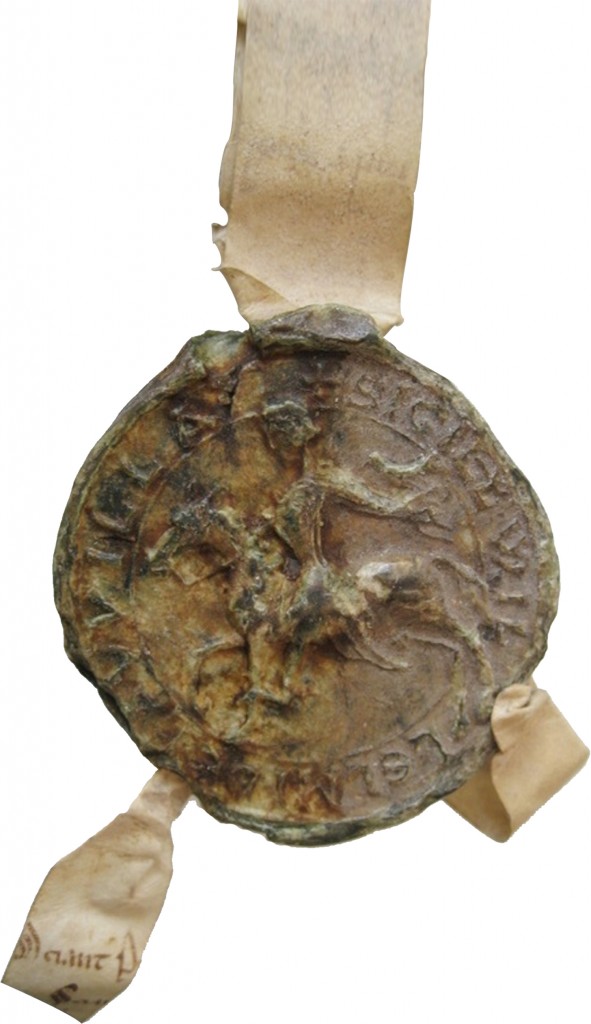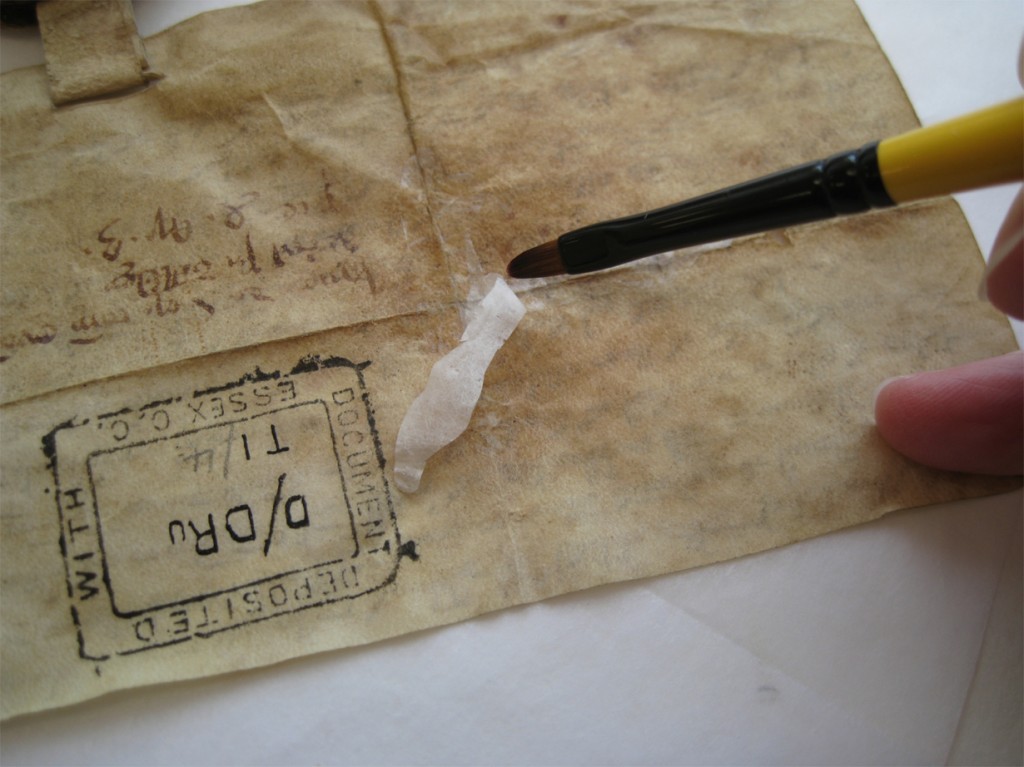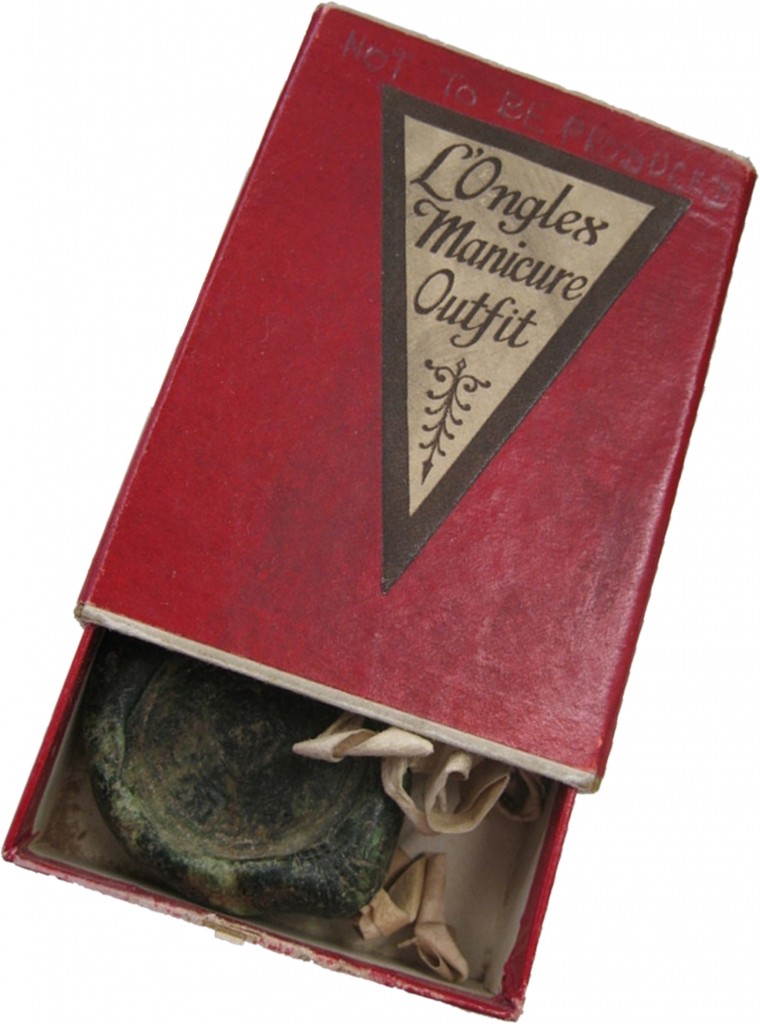Conservation is a vital part of our work at ERO. Our conservators work to protect and conserve documents, to ensure their survival for years to come.
One recent project has conserved a collection of 42 early medieval deeds relating to the manor of Colchester Hall in Takeley (document references D/DRu T1/1-42). These deeds are special for many reasons; they all date to before 1250, many have intact seals, and notes made in Arabic numerals on the back of the deeds are an early example of the use of this numbering system in England.
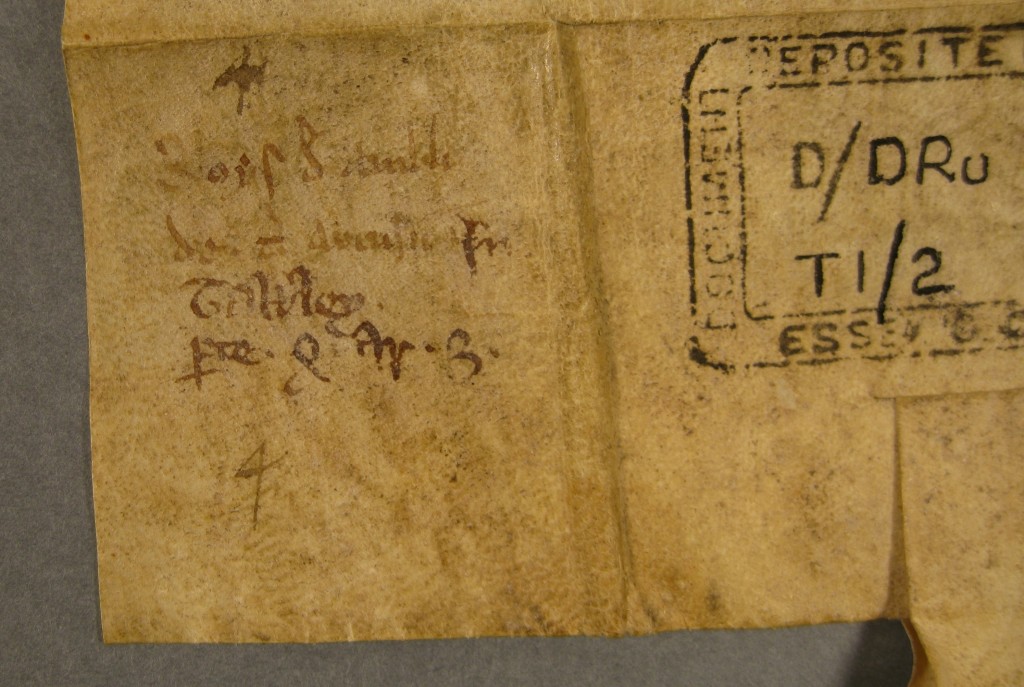
In the last line of this note, it is possible to make out an 8 and a 3 – an early example of the use of Arabic numerals in England. The 4 is from a later cataloguing system.
Unusually for such early deeds, over half still have their original seals attached, and the cleaning has made it possible to pick out detail on the seals which had been lost beneath accumulated dirt.
Tears in the parchment have been repaired using patches of goldbeater’s skin (a membrane made from calves intestine), applied with a gelatine adhesive. The patches are applied with a tissue backing, which is then removed, leaving an invisible repair.
The deeds were stored in cramped and damaging conditions, folded up in acidic envelopes, and even in an old manicure set box. The deeds have now been stored flat, with each being treated to its own custom-made board.
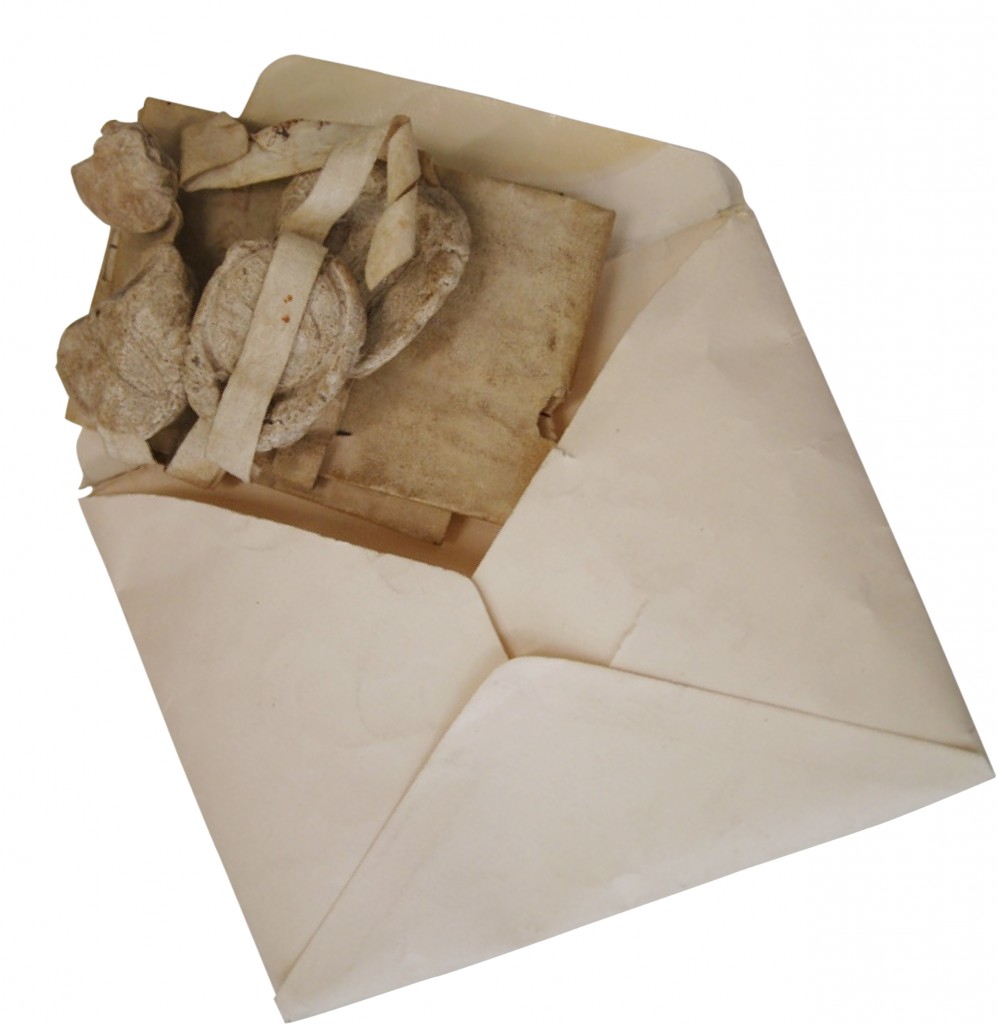
A deed in its former storage, folded up in an acidic envelope. Left for long enough the acid in the paper would damage the deed.
The newly-conserved deeds are on display for the next three months in our brand-new cases in the Searchroom.
The conservation project was possible thanks to the Newton Bequest, made by Ken Newton, former County Archivist and medieval historian, and his wife Mildred.

